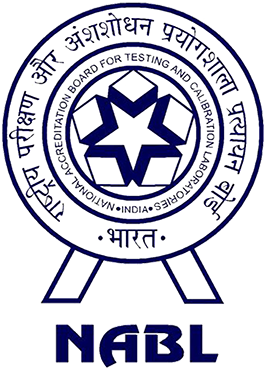Vitamin E Tocopherol
A **Vitamin E test** measures the level of vitamin E (alpha-tocopherol) in the blood. This test helps assess the body's vitamin E status, which is crucial for maintaining healthy skin, eyes, and a strong immune system.
**Key Points:**
- **Purpose:** Evaluates the concentration of vitamin E in the blood to determine if there is a deficiency or excess.
- **Clinical Relevance:** Vitamin E is an antioxidant that helps protect cells from damage caused by free radicals. Adequate levels are essential for neurological function and protection against oxidative stress.
- **Diagnostic Use:** This test is used to diagnose vitamin E deficiency, which can occur in conditions like malabsorption syndromes (e.g., Crohn's disease, cystic fibrosis), or in individuals with poor dietary intake. It can also detect vitamin E toxicity due to excessive supplementation.
- **Interpretation:** Low levels of vitamin E may indicate dietary deficiency, fat malabsorption, or certain genetic disorders. High levels could suggest over-supplementation, which may lead to health issues like increased bleeding risk.
Monitoring vitamin E levels helps in managing and preventing related health conditions effectively.
**Vitamin E** is a fat-soluble nutrient that acts as a powerful antioxidant, helping to protect cells from damage caused by free radicals. Free radicals are unstable molecules that can harm cellular components, leading to aging and various diseases, including cancer and heart disease. Vitamin E exists in several forms, but alpha-tocopherol is the most active form in the human body.
**Key Points:**
- **Function:** Vitamin E is crucial for maintaining healthy skin and eyes, and it strengthens the body's natural defense against illness and infection (immune system). It also plays a role in cellular signaling and gene expression.
- **Sources:** It is naturally found in a variety of foods, including nuts, seeds, vegetable oils, green leafy vegetables, and fortified cereals.
- **Deficiency:** A deficiency in vitamin E is rare but can lead to neurological problems due to poor nerve conduction. It is more likely in individuals with fat-malabsorption disorders.
- **Toxicity:** Excessive intake, usually from supplements, can lead to toxicity, causing symptoms like nausea, headache, and increased risk of bleeding due to its anticoagulant effects.
Maintaining adequate vitamin E levels is essential for overall health and protection against oxidative stress.
**विटामिन ई** एक वसा-घुलनशील पोषक तत्व है जो एक शक्तिशाली एंटीऑक्सिडेंट के रूप में कार्य करता है, जिससे फ्री रेडिकल्स के कारण कोशिकाओं को होने वाले नुकसान से बचाव होता है। फ्री रेडिकल्स अस्थिर अणु होते हैं जो सेलुलर घटकों को नुकसान पहुंचा सकते हैं, जिससे उम्र बढ़ने और कैंसर तथा हृदय रोग जैसी विभिन्न बीमारियाँ हो सकती हैं। विटामिन ई कई रूपों में मौजूद होता है, लेकिन अल्फा-टोकोफेरोल मानव शरीर में सबसे सक्रिय रूप है।
**मुख्य बिंदु:**
- **कार्य:** विटामिन ई स्वस्थ त्वचा और आंखों को बनाए रखने में महत्वपूर्ण भूमिका निभाता है, और यह बीमारी और संक्रमण (प्रतिरक्षा प्रणाली) के खिलाफ शरीर की प्राकृतिक रक्षा को मजबूत करता है। यह सेलुलर सिग्नलिंग और जीन अभिव्यक्ति में भी भूमिका निभाता है।
- **स्रोत:** यह स्वाभाविक रूप से कई खाद्य पदार्थों में पाया जाता है, जिसमें नट्स, बीज, वनस्पति तेल, हरी पत्तेदार सब्जियां, और फोर्टिफाइड अनाज शामिल हैं।
- **कमी:** विटामिन ई की कमी दुर्लभ है लेकिन यह खराब तंत्रिका संचालन के कारण न्यूरोलॉजिकल समस्याओं को जन्म दे सकती है। यह वसा-अवशोषण विकार वाले व्यक्तियों में अधिक संभावना है।
- **विषाक्तता:** अत्यधिक सेवन, आमतौर पर पूरकों से, विषाक्तता का कारण बन सकता है, जिससे मतली, सिरदर्द, और इसके एंटीकोआगुलेंट प्रभावों के कारण रक्तस्राव का बढ़ा हुआ जोखिम हो सकता है।
पर्याप्त विटामिन ई स्तर बनाए रखना समग्र स्वास्थ्य और ऑक्सीडेटिव तनाव के खिलाफ सुरक्षा के लिए आवश्यक है।
We provide blood tests in Noida, Gurgaon,
Faridabad,
Delhi,
Indirapuram, Ghaziabad, Greater Noida, and Greater Noida Extension(west).
















